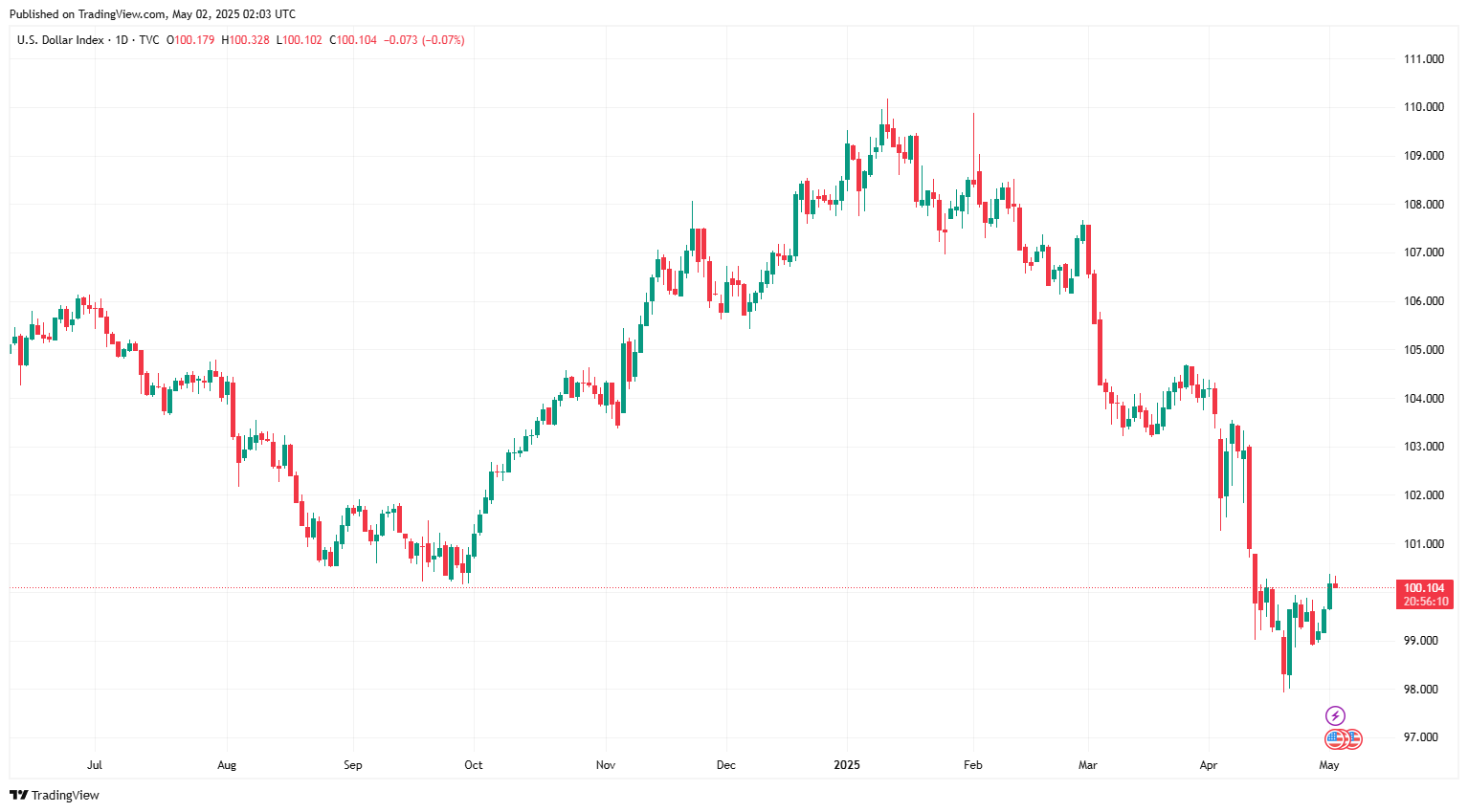 |
As of 9:00 a.m. this morning, the US dollar index was at 100.104, down 0.073 (0.07%) from the beginning of the session.
The greenback, US Treasury bonds and the stock market have all recovered after a sharp decline last month, mainly due to US President Donald Trump's unpredictable tariff policies, which raised recession fears and negatively affected investor confidence in US assets.
Wall Street rose overnight on strong earnings from tech companies and better-than-expected manufacturing data, despite a month-long contraction in manufacturing activity.
Investors’ attention now turns to non- farm payrolls data – due later today – for further clues as to when the US Federal Reserve (Fed) might resume its interest rate cutting cycle.
“If the jobs data is better than expected, this will push the US 2-year bond yield higher, thereby supporting the USD and the US stock market, while selling pressure on gold will increase,” said Chris Weston, Head of Research at Pepperstone.
The USD Index was little changed and is on track to gain around 0.5% for the week – a rather quiet trading week due to the holiday season.
Against the yen, the dollar fell 0.03 percent to 145.34 yen per dollar, slightly below a three-week high hit in the previous session.
The euro rose 0.08 percent to $1.1299, near a three-week low.
The Australian dollar rose 0.44% to $0.6411.
Chinese state media said on Thursday that the United States had reached out to Beijing to resume tariff talks, a move that could indicate China is open to returning to the negotiating table.
In Japan, the country's chief trade negotiator just concluded the latest round of negotiations in Washington. Speaking to the press after the meeting, he said Tokyo wants to hold another session in mid-May.
On the data front, initial jobless claims in the US rose sharply last week to their highest level in two months.
However, investors are still waiting for the non-farm payrolls report to assess the Fed's outlook for monetary policy. Wall Street economists forecast the US economy created only about 130,000 new jobs last month, down sharply from the 228,000 recorded in February.
“Our view is that the FOMC still needs more time and data to fully assess the impact of tariffs on inflation. As long as the labor market remains stable, the FOMC’s focus will continue to be on controlling inflation,” ANZ analysts said in a report.
Source: https://thoibaonganhang.vn/sang-25-dong-bac-xanh-huong-den-tuan-tang-gia-thu-ba-lien-tiep-163603.html


![[Photo] Prime Minister Pham Minh Chinh and Prime Minister of the Kingdom of Thailand Paetongtarn Shinawatra attend the Vietnam-Thailand Business Forum 2025](https://vphoto.vietnam.vn/thumb/1200x675/vietnam/resource/IMAGE/2025/5/16/1cdfce54d25c48a68ae6fb9204f2171a)
























![[Photo] President Luong Cuong receives Prime Minister of the Kingdom of Thailand Paetongtarn Shinawatra](https://vphoto.vietnam.vn/thumb/1200x675/vietnam/resource/IMAGE/2025/5/16/52c73b27198a4e12bd6a903d1c218846)

































































Comment (0)